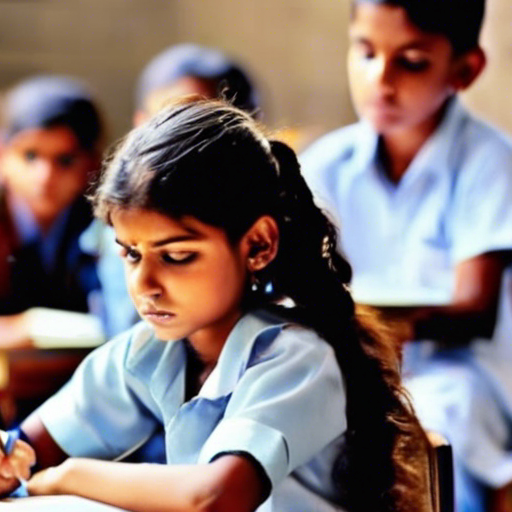The Indian school system has been dependent upon different reactions and appearances a few difficulties. It's essential to take note of that the framework is assorted and complex, with the two qualities and shortcomings. Here are a few normal worries raised about the Indian schooling system:
Repetition Learning:
Accentuation on Tests:
Absence of Reasonable Application:
Imbalance and Incongruities:
There are huge variations in the nature of schooling among metropolitan and rustic regions. Country schools might need foundation, qualified educators, and admittance to instructive assets, adding to a diligent metropolitan rustic gap.
Overemphasis on STEM Subjects:
While there is serious areas of strength for an on science, innovation, designing, and math (STEM) subjects, there is an apparent disregard of expressions and humanities. This can restrict understudies' openness to balanced training.
Obsolete Educational plan:
Educator Quality and Preparing:
There are worries about the nature of instructors, including issues connected with educator preparing, enrollment, and the viability of expert improvement programs.
Language of Guidance:
Absence of Professional Training:
The schooling system generally puts areas of strength for an on scholastic courses, and there is an apparent absence of accentuation on professional and expertise based instruction, which can be pivotal for specific vocation ways.
Center around Retention over Inventiveness:
Appraisal Framework:
The assessment situated evaluation framework may not really catch an understudy's general capacities, including viable abilities, imagination, and delicate abilities.
Absence of Spotlight on Youth Training:
Restricted custom curriculum Projects:
The schooling system may not sufficiently address the necessities of understudies with different learning skills, prompting an absence of comprehensive training for youngsters with extraordinary requirements.
Foundation and Asset Holes:
Overemphasis on Imprints and Grades:
There is in many cases an unnecessary accentuation based on scholarly execution in conditions of imprints and grades. This can make a restricted meaning of progress and may not perceive different types of ability or accomplishment.
Restricted Openness to Functional Abilities:
Crisscross Among Instruction and Work:
There is once in a while a confound between the abilities conferred by the school system and the abilities expected by the gig market. This can prompt difficulties in employability for graduates.
High Dropout Rates:
Social and Semantic Variety:
India is a different country with various dialects and societies. The consistency in the schooling system may not successfully take care of this variety, possibly minimizing specific phonetic and social gatherings.
Innovative Separation:
Administrative Difficulties:
Regulatory obstacles and managerial intricacies can dial back the execution of instructive changes. Smoothing out managerial cycles is urgent for successful and opportune changes.
Restricted Spotlight on Delicate Abilities:
Lacking Instructor Understudy Proportion:
In many schools, there is a high understudy to-educator proportion, which can make it moving for instructors to give customized consideration regarding individual understudies and address their particular advancing necessities.




0 Comments